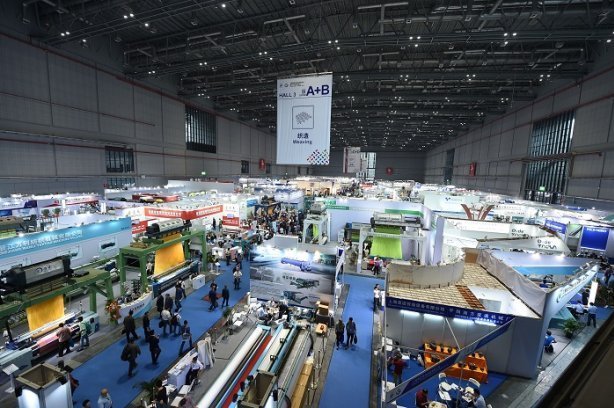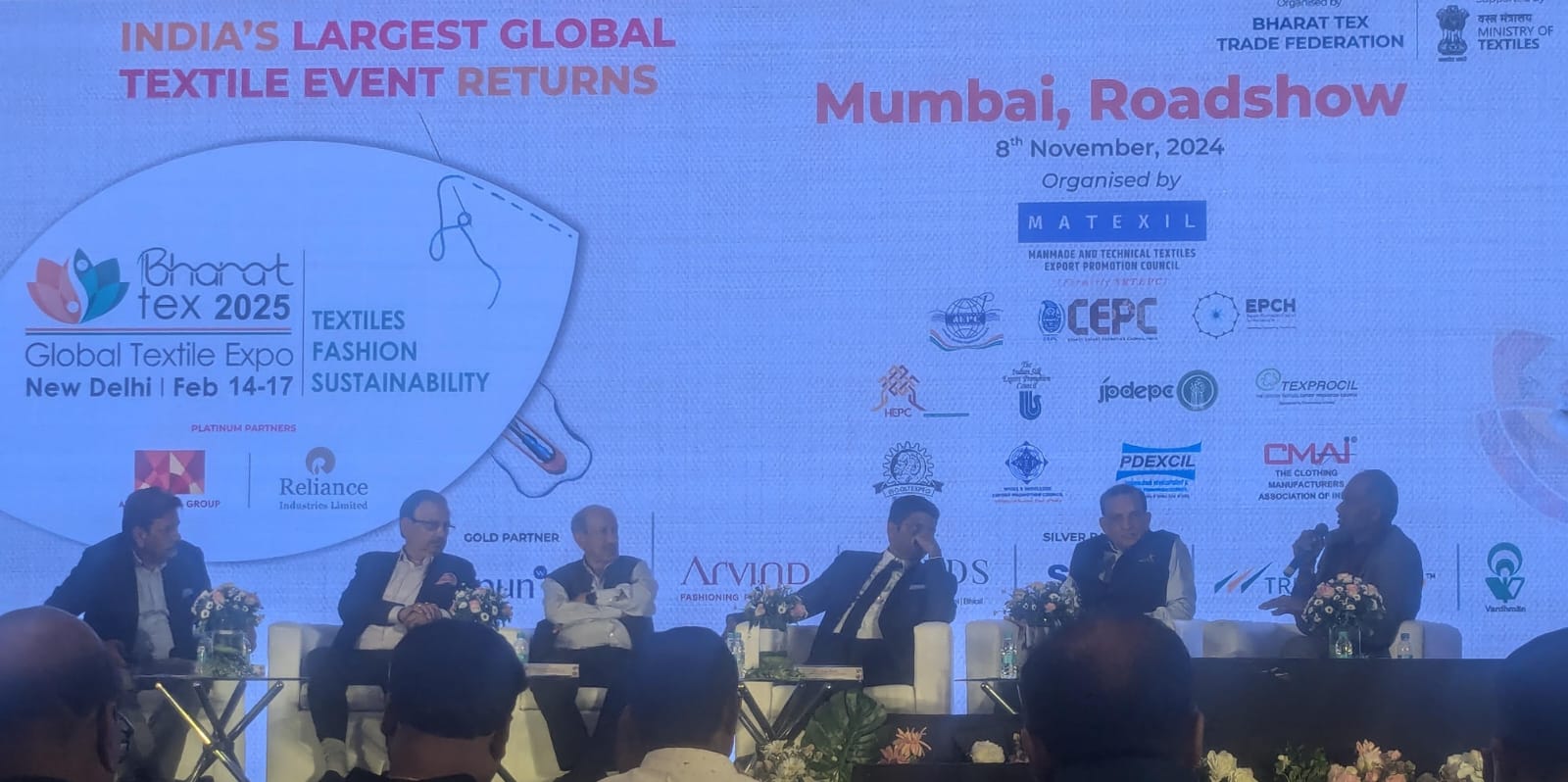FW
The International Monetary Fund (IMF) has called on Pakistan to eliminate preferential treatment, tax exemptions, and other protections for its agriculture and textile sectors, which it claims have hindered economic growth for decades. In a recent staff report, the IMF highlighted these sectors' failure to contribute significantly to national revenue while consuming substantial public funds, contributing to inefficiencies.
As part of a $7 billion Extended Fund Facility (EFF), the IMF emphasized the need for Pakistan to abandon outdated economic practices to escape persistent boom-bust cycles. The report pointed out that over 40.5 per cent of the population now lives below the poverty line, largely due to stagnant economic conditions.
The IMF criticized the country's export basket, which is heavily reliant on agriculture and textilesparticularly cotton yarn and woven fabrics. This dependency limits diversification into more technologically advanced goods, as Pakistan ranked 85th in the Economic Complexity Index, a stagnant position since 2000.
Additionally, the IMF noted significant tariff barriers that stifle competitiveness and inhibit advanced manufacturing. The textile sector has notably benefitted from various subsidies and preferential tax treatments since 2007, resulting in the highest tax gap relative to its value added.
To improve economic conditions, the IMF urged the Pakistani government to simplify trade policies in the upcoming National Tariff Policy (2025-29) and discontinue export subsidies and local content requirements, which may lead to misallocation of resources and violate international trade obligations.

ITMA ASIA + CITME 2024, Asia’s leading business platform for textile machinery and garment technologies, opened in Shanghai on October 14, marking a significant event for the textile industry. The five-day exhibition, which runs until October 18 at the National Exhibition and Convention Centre, offers a comprehensive display of solutions aimed at advancing manufacturing processes and promoting sustainability in the textile sector. This year’s event spans an impressive 160,000 square metres across six halls, hosting approximately 1,700 exhibitors from 22 countries and regions.
The exhibition is owned by CEMATEX, along with its Chinese partners, the Sub-Council of Textile Industry (CCPIT TEX), China Textile Machinery Association (CTMA), and China Exhibition Centre Group Corporation (CIEC). It serves as a vital platform for introducing innovations and solutions that can drive productivity and environmental responsibility in the textile industry.
Growing global participation and showcase of sustainability
Alex Zucchi, President of CEMATEX, expressed enthusiasm over the exhibition’s growth, highlighting a 9 per cent increase in size compared to the 2022 edition. Zucchi noted the importance of showcasing automation, digital technologies, and environmentally friendly solutions to build a more sustainable textile industry.
Gu Ping, President of CTMA, emphasized the exhibition’s relevance to China’s textile industry as it transitions toward more advanced, high-end manufacturing. The 2024 edition aligns with the country’s ‘new quality productivity’ drive, focusing on intelligent technologies and sustainability. Ping highlighted the critical role of the exhibition in supporting China’s evolving textile sector, which is increasingly prioritizing sustainable and efficient production practices.
Technological innovation and sector highlights
ITMA ASIA + CITME 2024 encompasses a broad range of technologies, covering the complete textile and garment manufacturing value chain. The product categories featured include spinning, weaving, knitting, printing, dyeing and finishing, nonwovens, embroidery, garment manufacturing, and recycling technologies. Automated production lines and digital solutions are among the key highlights, with a strong focus on enhancing productivity and reducing the industry's carbon footprint.
The dyeing and finishing sector commands the largest space, occupying 22 per cent of the exhibition area. It is followed by spinning and man-made fibre production, which take up 19 per cent, knitting at 16 per cent, weaving at 14 per cent, and printing and inks at 10 per cent. The showcased technologies offer manufacturers an opportunity to explore advanced machinery that supports efficient and sustainable textile production.
Global Exhibitors and Intellectual Property Safeguards
Exhibitors from mainland China dominate the event, occupying over 80 per cent of the exhibition space. International participation includes manufacturers from Germany, Japan, Italy, Taiwan (China), and Belgium. The exhibition features a carefully curated showcase, with only textile machinery manufacturers and intellectual property (IP) rights holders eligible to participate.
In addition to the technological displays, ITMA ASIA + CITME 2024 has implemented measures to protect intellectual property rights. An onsite IP office has been established, staffed by legal and technical experts to oversee and resolve any IP-related disputes during the exhibition.
Extensive promotional efforts to attract buyers
To ensure strong attendance, the organisers undertook an extensive promotional campaign both locally and internationally. This included overseas roadshows in key textile production hubs in Asia and intensive direct marketing initiatives. Collaborations with trade media partners further enhanced visibility, helping to attract a diverse group of buyers to the exhibition.
ITMA ASIA + CITME 2024 is organised by Beijing Textile Machinery International Exhibition Co Ltd and co-organised by ITMA Services. The Japan Textile Machinery Association (JTMA) also plays a special role as a partner of the event, adding to its global significance.
Heberlein Technology, established in 1835 and a leader in air interlacing and air texturing jets for synthetic filament yarns, has become a corporate member of the International Textile Manufacturers Federation (ITMF). Heberlein specializes in developing key components for optimizing synthetic yarn processing.
Christian Schindler, ITMF Director General, welcomed Heberlein’s membership, highlighting the value of their expertise in enhancing ITMF’s textile value chain. He noted that Heberlein’s involvement would bolster the organization’s knowledge, especially in machinery and components.
Martin Zürcher, CEO of Heberlein, emphasized the benefits of ITMF membership, including access to insightful industry statistics, surveys, reports, and networking opportunities at ITMF conferences, which help understand global textile dynamics.
Archroma, a global leader in specialty chemicals, has launched the NTR Printing System, marking a breakthrough in bio-based pigment printing. The system, based on renewable materials, allows brands to produce durable, brilliant black shades while minimizing their environmental impact.
The NTR Printing System addresses previous challenges of bio-based pigments, such as poor color fastness and production performance. This innovation utilizes renewable feedstock in its pigment dispersion, binder, and fixing agent, ensuring excellent wet- and dry-rubbing fastness and softness on various fabrics.
Designed for versatility, the system is compatible with multiple technologies, including printing and continuous dyeing. It is especially suited for markets like denim, where sustainability, comfort, and durability are key, as well as knits and babywear requiring exceptional softness and safety.
The NTR system comprises three main elements: Printofix Black NTR-TF, a non-gelling black pigment with 79 per cent renewable carbon content; Helizarin NTR-SS, a formaldehyde-free binder; and Luprintol Fixing Agent NTR-HF, a fixing agent designed for high wet fastness. These elements are being evaluated for compliance with global standards such as bluesign and GOTS.
Archroma’s latest development reflects its commitment to sustainability, aligning with the company’s ‘Planet Conscious+’ roadmap. This innovation builds on a decade of leadership in sustainable pigment printing, which began with the introduction of the first formaldehyde-free system in 2012.
At ITMA ASIA + CITME 2024, 42 VDMA member companies showcased innovative machinery across various segments, including spinning, weaving, knitting, and textile recycling. The German contingent, the largest foreign participation, highlighted smart technologies aimed at green textile production.
Georg Stausberg, board member of VDMA Textile Machinery and CEO of Oerlikon, emphasized the importance of energy efficiency and resource conservation in meeting Asia’s growing demand for sustainable textile solutions. VDMA members like Oerlikon, Saurer, and Gneuss presented cutting-edge technologies, focusing on recycling, reducing emissions, and increasing energy efficiency.
Despite a challenging global market, German textile machinery exports fell only 3.4 per cent in 2023, with exports to key markets like China and Turkey declining further in 2024. However, VDMA members remain optimistic about sales opportunities in Asia, with expectations of improvement in the next six months, particularly outside China.
VDMA’s continued presence in Asia, through events like ITMA ASIA and Singapore shows, underscores their commitment to promoting sustainable and smart textile solutions. Exhibitors demonstrated technologies like Groz-Beckert’s energy-efficient tools, Gneuss recycling solutions, and Karl Mayer’s resource-saving innovations, highlighting the industry’s shift toward greener practices.
Harald Weber, Managing Director of VDMA Textile Machinery, affirmed that ITMA ASIA remains a key platform for member companies to drive the transition toward eco-friendly textile production in Asia.
Schneider Group's Authentico brand is set to attend the 2024 Textile Exchange Conference from October 28-31 at Pasadena Convention Center, CA (booth 55). Authentico promotes a fully transparent and traceable wool supply chain, from farm to garment, offering ethical and high-quality wool that meets rigorous standards of responsibility.
The event will highlight the brand’s story, alongside its first fabric collection in partnership with Marzotto Group, which was launched at Milano Unica in July. The collaboration aims to provide premium wool fabrics that combine style with ethical production practices. Both Schneider and Marzotto, known for their long-standing tradition of quality, focus on traceability and responsible innovation throughout the supply chain.
Brands under the Marzotto umbrella, including FratelliTallia di Delfino, Guabello1815, Marzotto Fabrics, Marlane, Opera Piemontese, and Estethia GB Conte, have joined the journey toward ethical and traceable wool production. The partnership between these wool mills and Authentico continues to evolve, with the Textile Exchange Conference being the next step in showcasing their commitment to sustainability in the wool industry.
This collaboration reinforces Schneider Group's dedication to ethical sourcing, ensuring that both the fashion industry and consumers can make informed choices about premium quality wool products.
At ITMA ASIA + CITME, Stoll, part of the Karl Mayer Group, will present advanced textile machinery catering to the Asian market. The company’s showcase includes machines for fine fabrics and ready-made knitwear, reflecting key trends in China's growing demand. Stoll’s CMS 530 in gauge E20, featured at an in-house show in Changzhou, highlights the production of fine, high-quality flat knitwear. The knit and wear technology, allowing garments to be produced in a single process, is poised for rapid market growth.
The ADF 530-32 ki Flex, a multifunctional machine, will make its debut outside Europe, offering versatility in flat knitwear production. Stoll’s Nocturno collection, designed to inspire new applications, will also be a highlight.
Two CMS series models, the CMS 503 ki L and CMS 703 ki knit and wear, will address the needs of the Asian market. The CMS 503 ki L offers a wide variety of patterns and flexibility in size, while the CMS 703 ki knit and wear efficiently produces fine, high-quality garments.
An in-house show at Karl Mayer (China) will run alongside ITMA ASIA, offering visitors a closer look at Stoll’s full range of machines. Visitors will experience the innovative capabilities of machines as well as the newly opened Stoll TexLab for product development and experimentation.
Indo Count Industries has expanded its presence in bedding market by increasing its annual pillow production capacity by 8 million.
The company executed this capacity expansion by acquiring the Phoenix-based manufacturer, Modern Home Textiles Inc, through its US subsidiary, Indo Count Global Inc (ICG).
The acquisition follows ICG's recent purchase of a majority stake in Fluvitex USA Inc, an Ohio-based manufacturer of pillows and quilts. Together, both these acquisitions help boost Indo Count’s total production capacity in the US to 13 million pillows and 1.5 million quilts per year, with projected revenue exceeding $85 million once full capacity is achieved.
Anil Kumar Jain, Executive Chairman, Indo Count, emphasises, this expansion will help accelerate the company’s growth in the utility bedding sector besides extending its reach in the North American market. It will also enable Indo Count to streamline distribution across the Midwest and West Coast regions.
These acquisitions confirm with Indo Count’s strategy to expand its pillow manufacturing capabilities in North America significantly besides also boosting employment opportunities in the United States.
Marking an 80 per cent increase from last year’s 15.5 lakh bales, India's cotton exports are estimated to rise to 28 lakh bales during the 2023-24 crop year with majority of the demand coming from countries like Bangladesh and Vietnam.
As per estimates by USDA, India’s domestic cotton consumption is forecasted to rise to 317 lakh bales for the year, with 291 lakh bales already consumed by the end of August. Cotton imports too are estimated to have risen to 16.4 lakh bales compared to 12.5 lakh bales last year. On the other hand, cotton production, mill use, and exports in the US for the 2024/25 season is expected to decrease due to damage caused by Hurricane Helene. Globally, cotton production is projected to rise, with increases in China, Brazil, and Argentina balancing reductions in the U.S. and Spain.
Driven by the USDA’s revised cotton production forecast for India’s 2024-25, cotton Candy prices increased by 0.09 per cent, closing at Rs 57,000, USDA had earlier lowered India’s cotton production forecast for the 2024-25 season to 30.72 million bales due to crop damage from excessive rains and pest infestations. This also led to a reduction in projected ending stocks, now expected to decline to 12.38 million bales. While the acreage under cotton cultivation has decreased by about 9 per cent, the reduction is expected to be offset by higher yields, thanks to timely rains. However, price gains remain limited by moderate demand and sluggish export activity, especially from key markets like Bangladesh.
Statistics from the Department of Commerce’s Office of Textiles and Apparel (OTEXA) shows, overall imports of textiles and apparel across the globe declined by 2.6 per cent in Aug’24 from July’24.
However, totaling 9.72 billion sq m equivalents, T&A imports increased by 12.9 percent Y-o-Y during the month. Textile imports declined by 2.8 per cent from the previous month but increased by 17.5 per cent Y-o-Y to 7.21 billion SME.
On the other hand, apparel imports declined by 2.0 per cent from July but increased by 1.4 per cent Y-o-Y to 2.51 billion SME in Aug’24.
Imports of textiles and apparel increased by 6.7 per cent Y-o-Y to 66.4 billion SME in Aug’24. Of these, textile imports increased by 8.6 per cent Y-o-Y to 49.7 billion SMEwhile apparel imports rose by 1.4 per cent to 16.7 billion SME
For the year ending in Aug’24 2024, total T&A imports increased by 5.3 percent Y-o-Y to 96.7 billion SME. Of these, textile imports rose by 8.0 percent to 72.2 billion SME while apparel imports declined by 1.8 percent to 24.6 billion SME
The three major importers of textiles and apparels during Aug’24 included Malaysia whose imports rose by 52.3 per cent Y-o-Y to 985.8 million SME, Israel whose textile and apparel imports rose 30.7 per cent Y-o-Y to 147.6 million SME and India whose imports expanded by 27.2 per cent to 1.18 billion SME.












